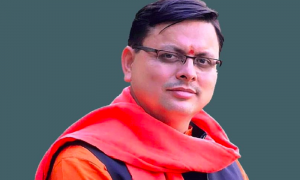In a first-of-its-kind initiative in Northern India, the Sector 50 Noida Metro station was rechristened as ‘Pride Station’ by the Noida Metro Rail Corporation (NMRC) on 27 October 2020. Kunal Mahore (28) started sex reassignment in the year 2018 but he was unable to secure a job. His job ended as a driver for a cab aggregator as the company where he was employed was unwilling to renew his contract until he completed the process, according to an Indian Express report. But this year, Mahore’s fortunes changed when he decided to apply for a job at the Pride Station, dedicated to the transgender community. On 5 October 2020, Kunal and five others were employed by the NMRC. While four are employed as ticket operators, two of them have been employed as housekeeping staff.
Kunal, who now works as a housekeeping staff at the Pride Station, was quoted in the report saying that this job is very important to him as he has a partner and children at home. Also, he further stated that sex reassignment is a long and expensive process and he is am undergoing treatment and yet to undergo the surgery. The entire process of sex reassignment can take up to three years and cost around Rs 1.5 – 4 lakh.
According to Preeti Batra (27), who is also employed in housekeeping, she is also saving up for the sex reassignment surgery. Previously, she used to work at an NGO where she earned Rs 10,000 and now she draws a salary of Rs 14,000. Preeti also mentioned that she wants to change the mindset of people regarding the transgender community. People think that transgenders are those on the streets asking for money but that is not the reality. The members of this community want to rise to higher positions from here, she added.
According to Mahi Gupta (27) who works at the ticket counter, while growing up, she was subjected to a lot of bullying. Now, the members of the transgender community are finally being given respect. But, transgenders are far from their goals as there are many others who are searching for jobs, Gupta said.
Behind this initiative, breaking stereotypes was one of the motives, said Praveen Mishra, Executive Director, NMRC. The transgender community has been facing discrimination for long so NMRC wanted to provide a platform to them where their dignity could be protected and uplifted, Mishra added.





































